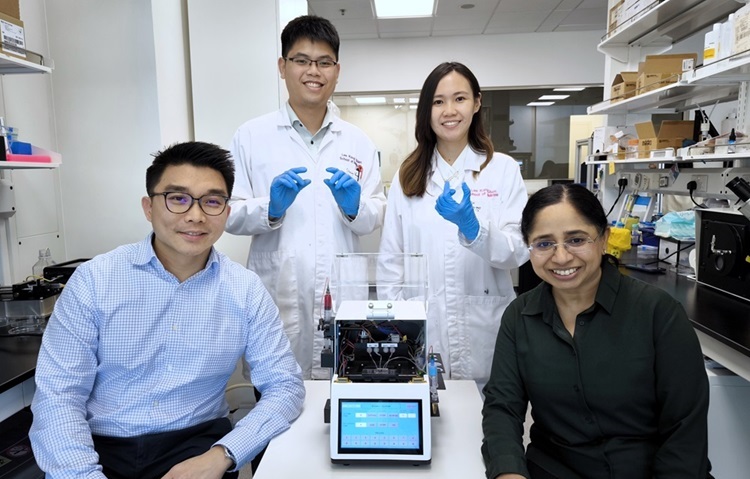Coin-Sized Device Rapidly Isolates Blood Plasma for Quicker and More Precise Clinical Diagnoses
Posted on 22 Mar 2024
Identifying biomarkers for various cancers and diseases often relies on cell-free DNA, RNA, and extracellular vesicles. Traditionally, separating blood plasma to detect these markers requires centrifugation, spinning blood to isolate cells from plasma. Yet, even after multiple centrifugation cycles, some cells and platelets remain in the blood plasma, potentially releasing unwanted biological materials that can affect diagnostic accuracy. Researchers have now developed a compact, coin-sized chip capable of extracting blood plasma directly from a sample within 30 minutes, resulting in a more convenient and user-friendly option than the currently laborious centrifugation method.
The chip named ExoArc, developed by scientists at Nanyang Technological University (NTU, Singapore), offers a one-step solution to achieve over 99.9% purity by efficiently removing blood cells and platelets. This advance promises quicker and more reliable clinical analysis of critical biomarkers. To demonstrate its utility, the team developed a portable prototype device (measuring 30cm x 20cm x 30cm) incorporating the ExoArc chip (3.5cm x 2.5cm x 0.3cm), featuring a user-friendly touch-screen for easy operation and internal mechanisms for sample processing and plasma collection.

In clinical validation trials, ExoArc demonstrated its diagnostic capabilities by accurately identifying non-small cell lung cancer through microRNA profiling in blood plasma, achieving 90% sensitivity. Additionally, the device proved effective in differentiating microRNA molecules in blood plasma between healthy individuals and those with type 2 diabetes mellitus, uncovering 293 distinct microRNA types from a single blood sample. The differences in microRNA profiles between diabetic patients and healthy controls highlight ExoArc's potential in biomarker identification and disease diagnosis, marking a significant step forward in non-invasive medical diagnostics.
“This technology can help clinicians better predict and manage complications of chronic metabolic conditions like diabetes, by providing more accurate, timely, and individualized information,” said Tan Tock Seng Senior Consultant and Associate Professor Rinkoo Dalan. “By detecting specific biomarkers accurately, we can tailor treatments to the unique needs of each patient, potentially improving outcomes and enhancing the quality of care.”
Related Links:
Nanyang Technological University













